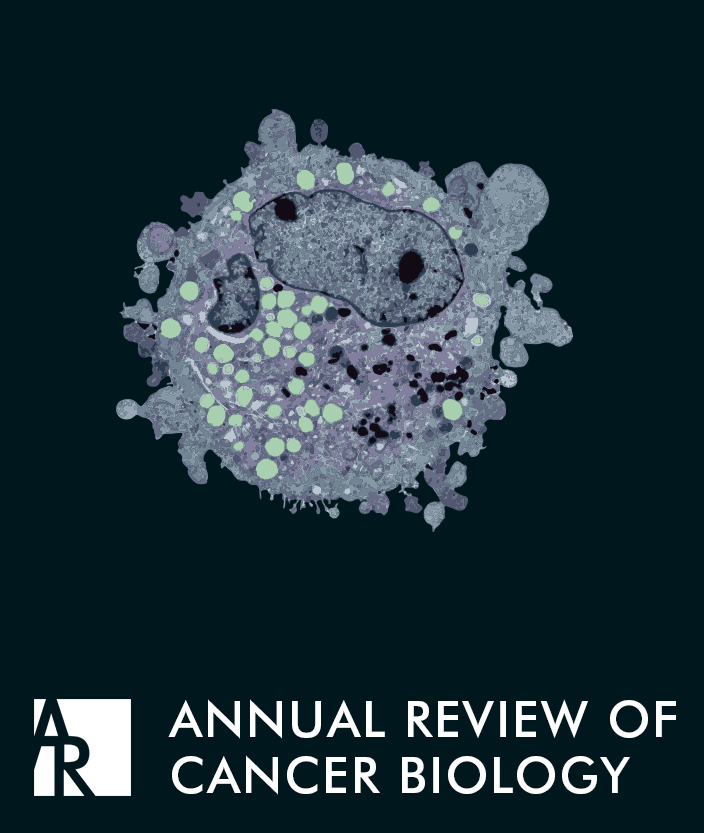癌症的线粒体自噬与线粒体功能障碍
IF 6.1
2区 医学
Q1 ONCOLOGY
Annual Review of Cancer Biology-Series
Pub Date : 2020-03-09
DOI:10.1146/annurev-cancerbio-030419-033405
引用次数: 39
摘要
线粒体自噬过程中,线粒体在自噬溶酶体中选择性地翻转,在消除功能失调的线粒体和减少线粒体质量方面发挥着核心作用,这是对关键生理应激(如缺氧、营养缺乏和DNA损伤)的适应性反应。线粒体自噬缺陷与线粒体代谢改变、过量活性氧的产生和脱铁性贫血、炎症小体激活增强、细胞命运决定改变和衰老等细胞后果有关。因此,功能性线粒体自噬有助于适当的组织分化、修复和代谢稳态,限制炎症反应并调节肿瘤进展和转移。本文综述了控制线粒体自噬的主要途径,包括PINK1依赖性线粒体自噬和BNIP3/NIX依赖性线粒体自噬。它还讨论了用于感知线粒体功能障碍以激活线粒体自噬的细胞信号机制,以及线粒体自噬缺陷如何导致肿瘤细胞生长失调和癌症。本文章由计算机程序翻译,如有差异,请以英文原文为准。
Mitophagy and Mitochondrial Dysfunction in Cancer
The process of mitophagy, in which mitochondria are selectively turned over at the autophagolysosome, plays a central role in both eliminating dysfunctional mitochondria and reducing mitochondrial mass as an adaptive response to key physiological stresses, such as hypoxia, nutrient deprivation, and DNA damage. Defects in mitophagy have been linked to altered mitochondrial metabolism, production of excess reactive oxygen species and ferroptosis, heightened inflammasome activation, altered cell fate decisions, and senescence, among other cellular consequences. Consequently, functional mitophagy contributes to proper tissue differentiation and repair and metabolic homeostasis, limiting inflammatory responses and modulating tumor progression and metastasis. This review examines the major pathways that control mitophagy, including PINK1-dependent mitophagy and BNIP3/NIX-dependent mitophagy. It also discusses the cellular signaling mechanisms used to sense mitochondrial dysfunction to activate mitophagy and how defective mitophagy results in deregulated tumor cell growth and cancer.
求助全文
通过发布文献求助,成功后即可免费获取论文全文。
去求助
来源期刊

Annual Review of Cancer Biology-Series
Medicine-Oncology
CiteScore
14.50
自引率
1.30%
发文量
13
期刊介绍:
The Annual Review of Cancer Biology offers comprehensive reviews on various topics within cancer research, covering pivotal and emerging areas in the field. As our understanding of cancer's fundamental mechanisms deepens and more findings transition into targeted clinical treatments, the journal is structured around three main themes: Cancer Cell Biology, Tumorigenesis and Cancer Progression, and Translational Cancer Science. The current volume of this journal has transitioned from gated to open access through Annual Reviews' Subscribe to Open program, ensuring all articles are published under a CC BY license.
 求助内容:
求助内容: 应助结果提醒方式:
应助结果提醒方式:


